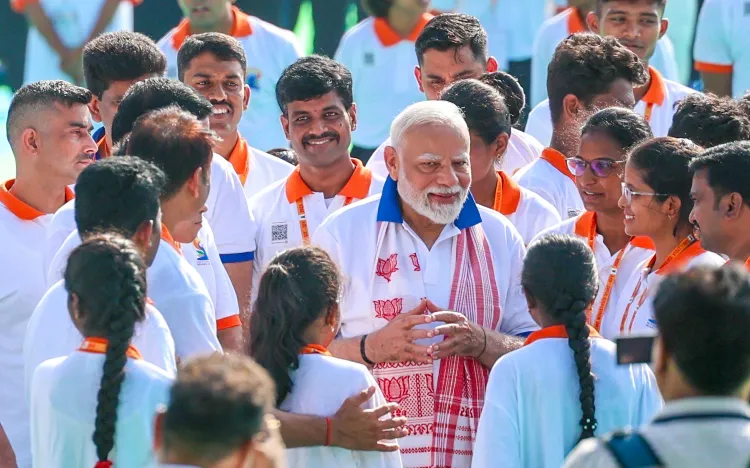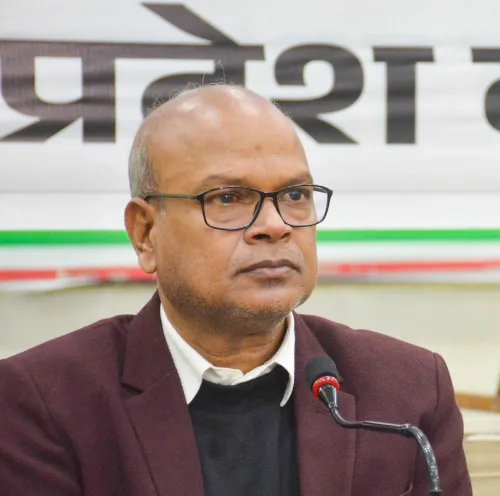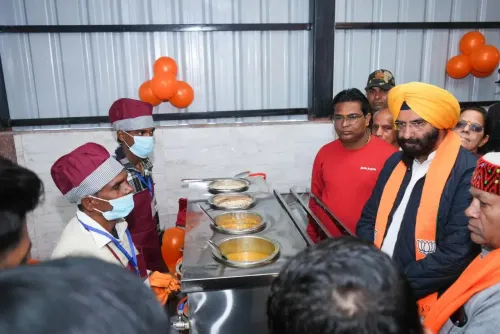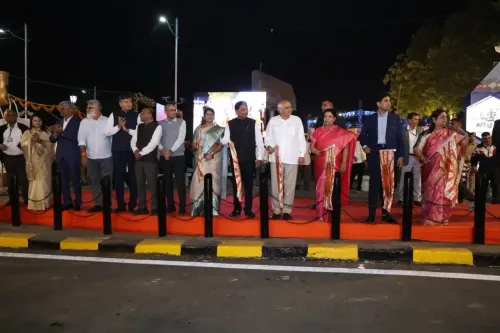How is the Integration of Yoga Enhancing Health for Women and Children in Welfare Policies?

Synopsis
Key Takeaways
- Yoga enhances physical and mental health.
- Promotes empowerment among women and children.
- Facilitates prenatal and postnatal well-being.
- Addresses lifestyle disorders in children.
- Increases female workforce participation.
New Delhi, June 21 (NationPress) Prime Minister Narendra Modi recently highlighted a thought-provoking article authored by the Union Minister for Women and Child Development, Annapurna Devi, discussing how Yoga is evolving into a nationwide movement aimed at fostering a healthier and more resilient India, especially for women and children.
In a post shared on his social media platform, PM Modi encouraged users on X to explore the article, which elaborates on the incorporation of Yoga into the nation's welfare policies for women and children, thereby promoting health and wellness at the grassroots level across India.
In her Op-Ed titled ‘Yoga as a mass campaign to build a healthier India’, Union Minister Annapurna Devi emphasized the transformative role of Yoga in empowering women and nurturing children.
She pointed out the advantages of Yoga for pregnant women, detailing the benefits of prenatal and postnatal practices that ensure the well-being of both mother and child.
In sharing the article, she stated, “Yoga is more than an ancient practice; it is a mass movement aimed at achieving a healthier and empowered India — particularly for women and children.”
As the nation progresses towards the goal of Viksit Bharat, she asserted the importance of integrating Yoga into the lives of women and children, who represent two-thirds of the population and are disproportionately vulnerable to health challenges.
“Yoga enhances mental health, balances hormones, and strengthens the muscular and skeletal systems, making it particularly beneficial for women across all age groups,” she remarked.
“Incorporating Yoga into the pre and post-pregnancy period helps women navigate associated health issues effectively. Prenatal Yoga, with its specific postures and meditative practices, alleviates discomforts during pregnancy, aids in pain management, and boosts energy levels, physically and emotionally preparing mothers for childbirth. Postnatal Yoga supports recovering lactating mothers, enhances emotional well-being, and fosters a strong mother-child bond,” she added.
The minister also mentioned her ministry's efforts in employing over 2.5 million anganwadi workers to educate and encourage women and children to adopt Yoga as a daily habit.
“For children, lifestyle-related disorders, excessive screen time, and academic stress have become significant health issues. Yoga addresses these concerns by improving concentration, memory, emotional control, sleep quality, and stress management,” she explained while discussing initiatives like Mission Saksham, Anganwadi, and Poshan 2.0 aimed at integrating Yoga into early childhood care.
She also highlighted the necessity of increasing female labor force participation, noting that it could elevate manufacturing output by 9% and contribute towards achieving high-income developed nation status by 2047.
Furthermore, she shared insights on flagship programs within her ministry designed to make women integral to India's growth narrative, stating, “From information technology to space exploration, and from policymaking to strategic defense, women are the new frontline warriors. Thus, it is imperative that women harness their potential, with Yoga playing a crucial role.”










